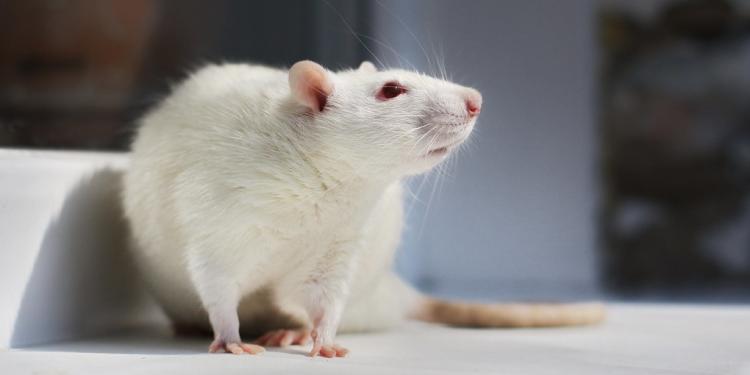
The European Parliament held its long-awaited plenary vote on the revision of the Regulation on the Classification, Labelling and Packaging of chemical substances and mixtures (CLP) on 4 October. Although some new measures in the revised regulation are encouraging, other measures are still too weak and do not go far enough to reduce and ultimately phase out animal testing.
The CLP Regulation, one of the two cornerstones of the EU chemicals regulatory framework along with the regulation on the Registration, Evaluation, Authorisation and Restriction of Chemicals (REACH), requires companies to classify and label their substances and mixtures to ensure a high level of protection for human health and the environment.
In December 2022, the European Commission proposed a revision of the CLP Regulation, as announced in the EU Chemicals Strategy for Sustainability (CSS). The proposed CLP revision package consisted of a legislative proposal for the amendment of the CLP Regulation and a delegated act as a complement to the legislative proposal. While the delegated act has already entered into force in April 2023 following scrutiny by the European Parliament and the Council, the procedure of adopting the legislative proposal into EU law is still ongoing.
Eurogroup for Animals, in collaboration with its members and other animal protection NGOs, has been working hard over the last year by submitting amendments to both the CLP legal text itself and related guidance documents. In particular, we have sought to ensure that the revised legislative proposal is aligned with the CSS objective of reducing reliance on animal testing, with the EU goal of fully replacing the use of animals in science, and most recently with the European Commission’s 2023 announcement of a roadmap to replace animal testing in chemicals regulation. To this end, we have repeatedly called for the revision of the CLP Regulation to include concrete steps to better recognise and adopt non-animal methods, to prevent both new animal tests and an increase in existing tests, and to ensure that animal tests are truly considered as the last resort.
The plenary vote in Parliament follows a vote by the Environment Committee (ENVI) in early September, where various compromise amendments to the text of the CLP regulation were discussed and agreed. The plenary vote was the moment of truth for our lobbying efforts, as it would ultimately represent the Parliament’s position for later negotiations with the Council.
Following the vote, we welcome some of the new measures, such as improved wording on the use of non-animal methods and to allow the CLP Regulation to take into account future advances in animal-free science. In particular, Article 7 has been amended to read “non-animal, animal, and human testing”, along with a newly added paragraph clearly stating “tests using new approach methodologies shall also be considered”. In addition, Article 53 has been amended to include “the promotion of alternative methods for assessment of hazards of substances and mixtures”, expressly addressing it as a priority for future adaptations to the regulation.
However, we are concerned that other provisions of the Regulation are still too weak and do not sufficiently encourage the transition away from animal testing or maximise the use of existing non-animal methods available. In addition, there is still conflicting information in the revised CLP Regulation and related guidance documents with regard to new animal testing requirements. Although these files state that hazard classification under CLP does not lead to any new testing requirements, the recent introduction of new chemical hazard classes, such as endocrine disruptors, may potentially result in significant increases in new animal tests. Eurogroup for Animals and other NGOs called for wording allowing new animal tests to be removed, but this was rejected.
Eurogroup for Animals is continuing its work to achieve real-world measures towards animal-free regulatory testing and scientific innovation by pursuing our efforts on the CLP Regulation. For example, we will continue to lobby for the CLP to reach the same standards as the United Nations’ Globally Harmonized System of Classification and Labelling of Chemicals (GHS) in recognising and promoting non-animal methods, and on which CLP is based. We will also continue our work on the revision of the REACH Regulation, with a legislative proposal expected to be brought forward by the Commission by the end of this year, and strive to ensure that the Commission’s promised roadmap includes concrete steps to move away from animal testing in chemical safety assessment.
Finally, as part of the broader EU strategy and political mandate to transition to non-animal science, we will seek to ensure that modern, scientifically relevant, animal-free innovations continue to be implemented in research, training and education
